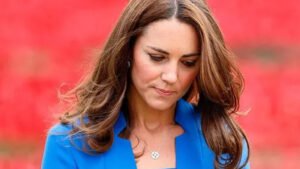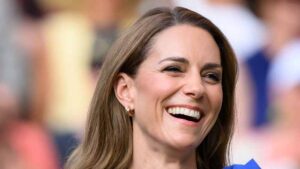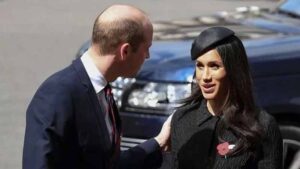
Getty
Royal commentator Richard Fitzwilliams recently voiced concerns to The Sun about Meghan Markle’s unpredictable behavior, highlighting potential risks for the British royal family. He emphasized the challenges posed by the Sussexes’ unconventional actions, particularly their upcoming “faux royal tour.”
“I think when you have former senior working members of the Royal Family doing what the Royal Family would like to do, it will create difficulties,” Fitzwilliams remarked regarding the couple’s planned activities. Fitzwilliams pointed out that unpredictability has become a central issue within the Sussexes’ sphere. Their actions, he noted, often diverge from traditional royal norms, raising concerns within royal circles.
Contrastingly, Fitzwilliams noted a quieter period for the Waleses, suggesting they currently lack the ability to attract attention on the same scale as the Sussexes. In the world of royalty, public attention plays a significant role, making it a crucial factor for those in the spotlight.
The concerns over Meghan Markle’s unpredictability are not unfounded. Her decisions, coupled with Prince Harry’s, have often steered away from the expected norms of royal conduct. This departure from convention has drawn both praise and criticism, highlighting a broader cultural shift within the monarchy.
As the Sussexes plan their second “faux royal tour,” speculation mounts about its potential impact. Such ventures, while possibly well-intentioned, may inadvertently complicate relations with the royal institution. This dynamic underscores a continuing tension between personal freedom and royal responsibility.
In recent years, Meghan Markle has emerged as a figure who challenges royal traditions and expectations. Her advocacy work and public appearances have garnered global attention, amplifying her influence beyond traditional royal duties, reported Daily Express.
However, this newfound freedom has not come without consequences. Critics argue that such independence can blur the lines between personal and official roles, potentially undermining the monarchy’s established protocols.
Despite these concerns, Meghan and Harry’s approach resonates with a modern audience seeking authenticity and social engagement from public figures. Their efforts to prioritize personal convictions over traditional constraints reflect broader societal shifts towards inclusivity and individual empowerment.
The upcoming “faux royal tour” thus symbolizes more than a geographical journey; it embodies a symbolic journey toward redefining royal engagement in a contemporary context. For Meghan Markle and Prince Harry, navigating these uncharted waters requires balancing personal expression with public responsibility—a delicate dance that continues to provoke debate and scrutiny.
As the royal family adapts to these evolving dynamics, the future role of Meghan Markle remains uncertain yet undeniably influential. Her ability to challenge conventions while maintaining a global platform underscores a pivotal moment in the monarchy’s history—one shaped by both tradition and transformation.


